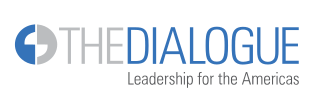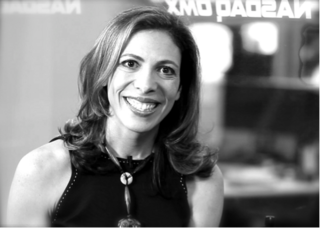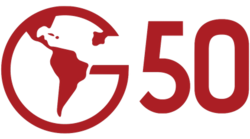
A think tank, or policy institute, is a research institute that performs research and advocacy concerning topics such as social policy, political strategy, economics, military, technology, and culture. Most think tanks are non-governmental organizations, but some are semi-autonomous agencies within government, and some are associated with particular political parties, businesses or the military. Think tanks are often funded by individual donations, with many also accepting government grants.

A nonprofit organization (NPO), also known as a nonbusiness entity or nonprofit institution, and often referred to simply as a nonprofit, is a legal entity organized and operated for a collective, public or social benefit, as opposed to an entity that operates as a business aiming to generate a profit for its owners. A nonprofit is subject to the non-distribution constraint: any revenues that exceed expenses must be committed to the organization's purpose, not taken by private parties. An array of organizations are nonprofit, including some political organizations, schools, business associations, churches, social clubs, and consumer cooperatives. Nonprofit entities may seek approval from governments to be tax-exempt, and some may also qualify to receive tax-deductible contributions, but an entity may incorporate as a nonprofit entity without having tax-exempt status.
A trade association, also known as an industry trade group, business association, sector association or industry body, is an organization founded and funded by businesses that operate in a specific industry. An industry trade association participates in public relations activities such as advertising, education, publishing, lobbying, and political donations, but its focus is collaboration between companies. Associations may offer other services, such as producing conferences, setting industry standards, holding networking or charitable events, or offering classes or educational materials. Many associations are non-profit organizations governed by bylaws and directed by officers who are also members.. Many associations are non-profit organizations governed by bylaws and directed by officers who are also members..

Enrique Valentín Iglesias García is a Spanish-born Uruguayan economist. He served as the first president of the Central Bank of Uruguay from 1967 to 1969. He has also served as Inter-American Development Bank, an international institution dedicated to furthering economic development in the Western Hemisphere through investment and policy formulation. He was appointed as Special Adviser for Venezuela to Federica Mogherini, the European Union's High Representative for Foreign Affairs and Security Policy and Vice-President of the European Commission, on 28 May 2019.

The United Nations Global Compact is a non-binding United Nations pact to get businesses and firms worldwide to adopt sustainable and socially responsible policies, and to report on their implementation. The UN Global Compact is the world's largest corporate sustainability and corporate social responsibility initiative, with more than 20,000 corporate participants and other stakeholders in over 167 countries. The organization consists of a global agency, and local "networks" or agencies for each participating country. Under the Global Compact, companies are brought together with UN agencies, labour groups and civil society.

Fundraising or fund-raising is the process of seeking and gathering voluntary financial contributions by engaging individuals, businesses, charitable foundations, or governmental agencies. Although fundraising typically refers to efforts to gather money for non-profit organizations, it is sometimes used to refer to the identification and solicitation of investors or other sources of capital for for-profit enterprises.
A social enterprise is an organization that applies commercial strategies to maximize improvements in financial, social and environmental well-being. This may include maximizing social impact alongside profits for co-owners.
The social economy is formed by a rich diversity of enterprises and organisations, such as cooperatives, mutuals, associations, foundations, social enterprises and paritarian institutions, sharing common values and features:

The Group of 15 (G-15) is an informal forum set up to foster cooperation and provide input for other international groups, such as the World Trade Organization (WTO) and the Group of Seven. It was established at the Ninth Non-Aligned Movement Summit Meeting in Belgrade, Yugoslavia, in September 1989, and is composed of countries from Latin America, Africa, and Asia with a common goal of enhanced growth and prosperity. The G-15 focuses on cooperation among developing countries in the areas of investment, trade, and technology. Chile, Iran and Kenya have since joined the Group of 15, whereas Yugoslavia is no longer part of the group, and Peru, a founding member-state, decided to leave the G-15 in 2011. Membership thus has since expanded to 17 countries, but the forum's name remains unchanged.
The Tönissteiner Kreis e.V. (TK) is a network of top ranking leaders in business, academia and politics with a strong international background and interest. It is nonpartisan, interdisciplinary and intergenerational. The TK is a forum for international dialogue and aspires to address society's challenges, supported by pro-bono and non-profit work.

Social entrepreneurship is an approach by individuals, groups, start-up companies or entrepreneurs, in which they develop, fund and implement solutions to social, cultural, or environmental issues. This concept may be applied to a wide range of organizations, which vary in size, aims, and beliefs. For-profit entrepreneurs typically measure performance using business metrics like profit, revenues and increases in stock prices. Social entrepreneurs, however, are either non-profits, or they blend for-profit goals with generating a positive "return to society". Therefore, they use different metrics. Social entrepreneurship typically attempts to further broad social, cultural and environmental goals often associated with the voluntary sector in areas such as poverty alleviation, health care and community development.

Cooperative banking is retail and commercial banking organized on a cooperative basis. Cooperative banking institutions take deposits and lend money in most parts of the world.

The Inter-American Dialogue, also known as the Dialogue or IAD, is a U.S.-based think tank in the field of international affairs primarily related to the Western Hemisphere. Headquartered in Washington, D.C it intends to "foster democratic governance, prosperity, and social equity in Latin America and the Caribbean". The Dialogue's research areas focus on the rule of law, education, migration, remittances, energy, climate change and extractive industries.

The Ivy Council is a non-profit organization of Ivy League student government leaders, student organization leaders, and students at-large. The Ivy Council was established in 1990 by members of the Ivy League student governments in order to facilitate effective communication between the student governments of their respective institutions and to provide a unified voice for the Ivy League student governments. On its 30th anniversary, the organization was restructured and expanded its focus beyond the eight Ivy League universities to better serve its new mission statement.

The Fund for Peace is an American non-profit, non-governmental research and educational institution. Founded in 1957, FFP "works to prevent violent conflict and promote sustainable security."

Sapientis is a nonprofit organization based in San Juan, Puerto Rico, that improves public education to reduce poverty, stimulate economic growth, and enhance the standard of living in Puerto Rico.

The American Iranian Council (AIC) was formed in 1990 as a US-based bi-partisan think tank focused upon promoting better relations between the United States and Iran. Former United States Secretary of State Cyrus Vance was the original honorary Chair of the organization. The AIC is an academic research and education organization that is focused upon improving the dialogue between two countries that often fail to take into account misperceptions, misunderstandings, and mischaracterizations. The AIC seeks to help policy makers as well as concerned citizens become better aware of the interests in common to both countries.

The Public Policy Forum (PPF) is an independent, non-profit Canadian think tank for public-private dialogue. The organization's stated aim is "to serve as a neutral, independent forum for open dialogue on public policy."

Linda Rottenberg is an American businesswoman and author. She is the author of Crazy Is a Compliment: The Power of Zigging When Everyone Else Zags. She is the CEO and Co-founder of Endeavor, a non-profit organization that encourages the power of entrepreneurship.















